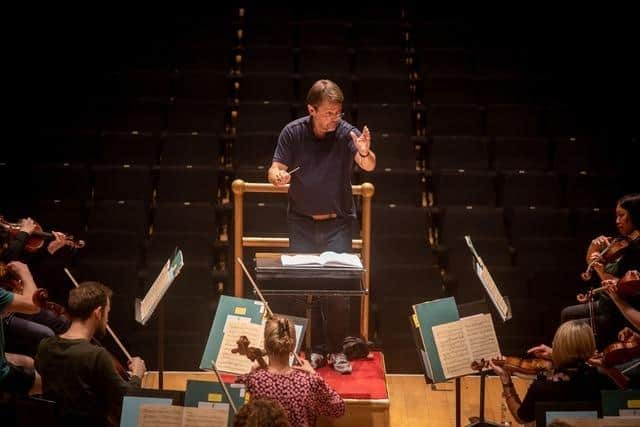Music review: RSNO & Andrey Boreyko, Glasgow Royal Concert Hall


RSNO & Andrey Boreyko Glasgow Royal Concert Hall ****
There’s a fine line to tread between making a token gesture and creating a really powerful political message, especially when that message pertains to the situation in Ukraine. The RSNO got it spot on this weekend, mostly because the existing programme was already a historically political hot potato.
Not only was it exclusively by Shostakovich – music from the opera Lady Macbeth of Mtsensk that got the composer censured by Stalin, and a Fifth Symphony written as a tongue-in-cheek apology – but with James Conlon calling off, his place was taken last-minute by the Russian-Polish conductor Andrey Boreyko, who recently cancelled all Russian appearances in protest at the war.
Advertisement
Hide AdAdvertisement
Hide AdIf that in itself translated into performances of seething relevance, the real coup de théâtre was the opening inclusion of Mykylo Lysenko’s Prayer for Ukraine, a sentimentally proud patriotic hymn associated with that country’s successive struggles with Russia since 1885, whose segued juxtaposition with the Mtsensk suite echoed the life-changing horrors of the 24 February invasion.
Two orchestral movements from the Shostakovich, both arranged by Conlon, were enough to convey the turbulent passions in this bleak opera, whether the darkness and despair of the Passacaglia (amplified by Boreyko’s coaxing out of the bass clarinet), or the venomous satire meted out in the cartoonesque The Drunkard.
The latter was the perfect springboard to soloist Simon Trpčeski’s coolly acerbic reading of Shostakovich’s Piano Concerto No 2, a cheeky display of nonchalance, of charismatic understatement, that ignited the outer movements, the delectable flip side of which was the breathless post-Rachmaninov lyricism of the gorgeous slow movement.
With the Fifth Symphony it was back to the political playground, and a performance which, despite the odd imperfection, seemed unquestionably convinced by the rudeness of its hidden intent, its hideously hollow rapture.